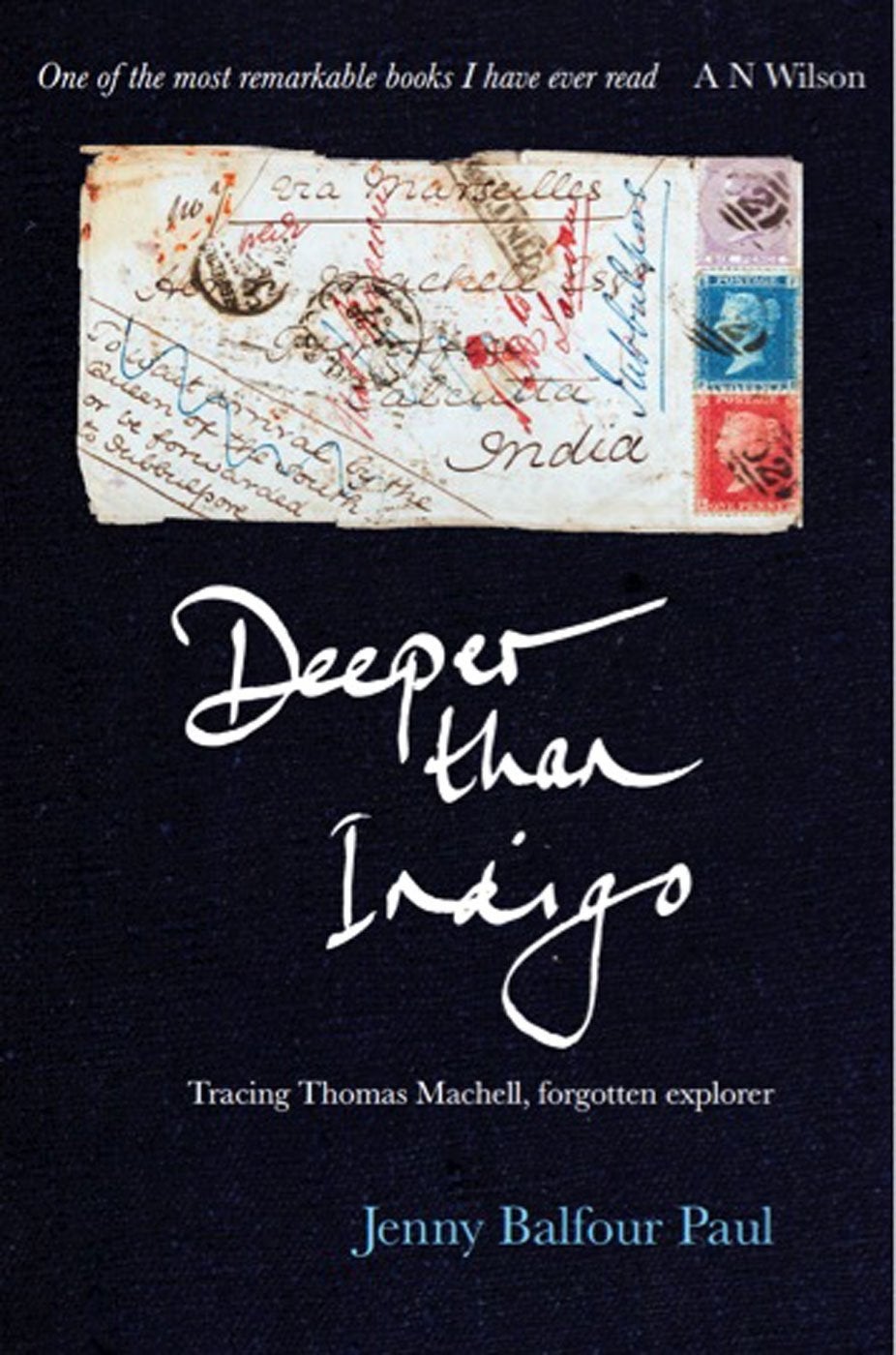Deeper than Indigo, by Jenny Balfour-Paul - book review: When two lives collide
Medina Publishing - £22.99

Your support helps us to tell the story
From reproductive rights to climate change to Big Tech, The Independent is on the ground when the story is developing. Whether it's investigating the financials of Elon Musk's pro-Trump PAC or producing our latest documentary, 'The A Word', which shines a light on the American women fighting for reproductive rights, we know how important it is to parse out the facts from the messaging.
At such a critical moment in US history, we need reporters on the ground. Your donation allows us to keep sending journalists to speak to both sides of the story.
The Independent is trusted by Americans across the entire political spectrum. And unlike many other quality news outlets, we choose not to lock Americans out of our reporting and analysis with paywalls. We believe quality journalism should be available to everyone, paid for by those who can afford it.
Your support makes all the difference.In 1999 a librarian noticed a hand-written diary at the British Library, open at a page with an amusing watercolour sketch, entitled “Indigo planters after tiffin.” He mentioned it to Jenny Balfour-Paul, an indigo expert. Her resulting quest to follow the life of Thomas Machell, the writer (and painter) of that journal, has resulted in this extraordinary book.
On their own, Machell’s adventures would be fascinating: a young man, an excellent writer, with a mysterious unnamed “defect” disqualifying him for the Army life of his brothers, he set off on a merchant ship at 16 in 1840 and travelled widely through the Middle East, India (particularly India), Polynesia, and China, dying at 37.
When he was 17, Thomas was enmeshed in the First Opium War. Later, he became an indigo planter in Bengal, returned to Europe on an Arab ship dressed as an Arab merchant, and fell in requited love with a Polynesian chief’s daughter.
But this book is much more than a series of marvellous accounts of a Victorian Englishman abroad. Because what Balfour-Paul begins to find, as she reads the diaries and later travels to follow Thomas’s trail, is that her own (also extraordinary, brave and eccentric) life eerily echoes Thomas’s.
It is not just their shared indigo passion, nor that on the same days in 1848 and 2010 they were on alert for pirates off Yemen, nor that as a hippy teenager she had already visited Thomas’s home area in Bengal – it is that there are coincidences in this beautifully written, cleverly structured book which seem to crack open the very nature of life itself.
At one point in the Malabar Hills, Balfour-Paul undergoes a past life regression, something she had never imagined herself doing. In the following days she finds herself describing some of the gaps in Thomas’s biography, and especially his last six years (for which no diaries exist) and his death.
Later, she asks her literary agent, Gillon Aitken, should she include all of it? Even the weird stuff? Yes, he said, she should include it all. Then it turned out that Aitken had worked for the publisher Hamish Hamilton, where Thomas’s great-nephew Roger had been a partner, and knew the main beneficiary of Roger Machell’s will. And that led to Balfour-Paul’s being shown an ancient wooden box of documents found in Roger Machell’s basement, which had not been read for years. Amazingly, they told the stories of Thomas’s final years ….
Join our commenting forum
Join thought-provoking conversations, follow other Independent readers and see their replies
Comments